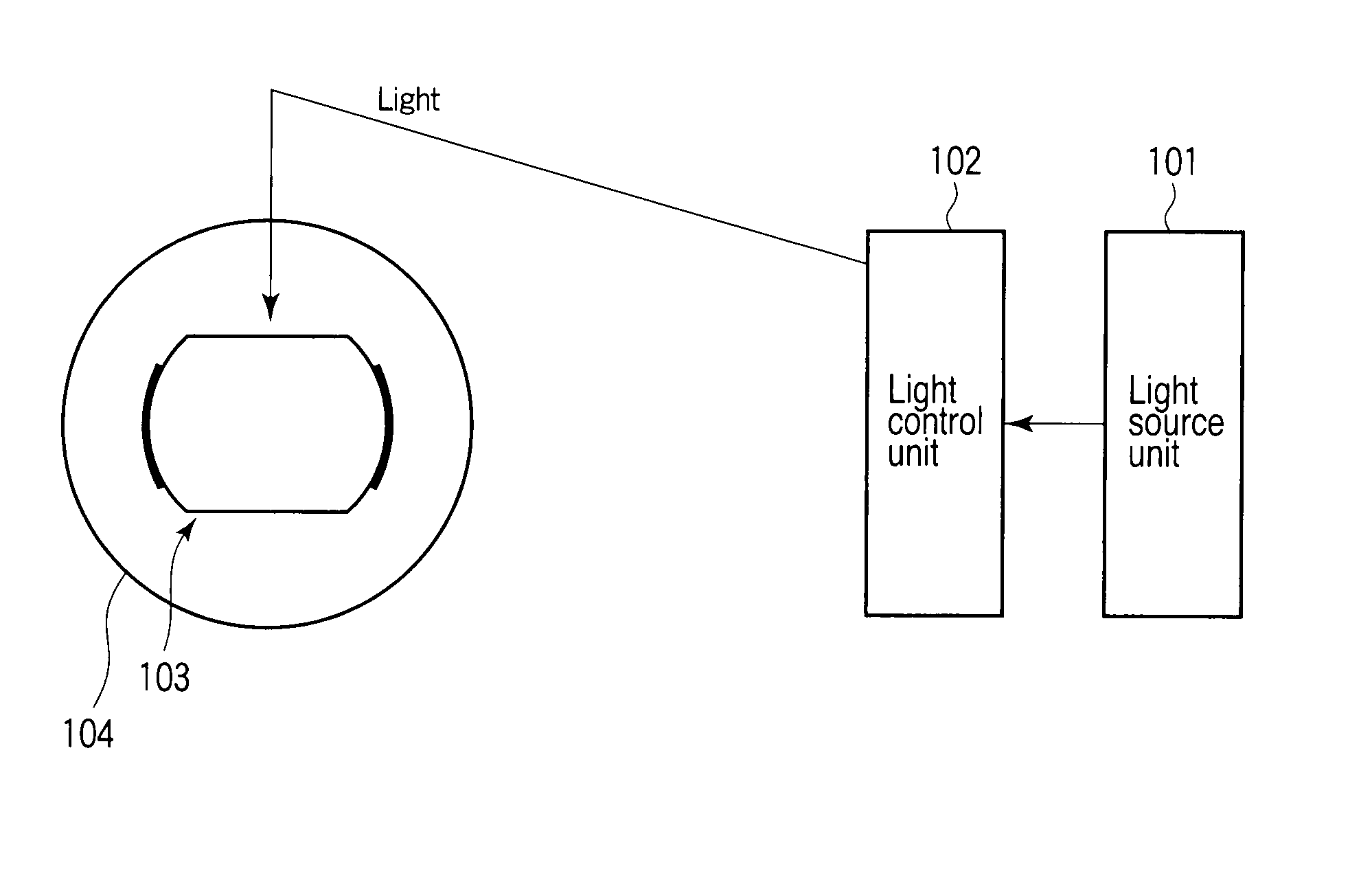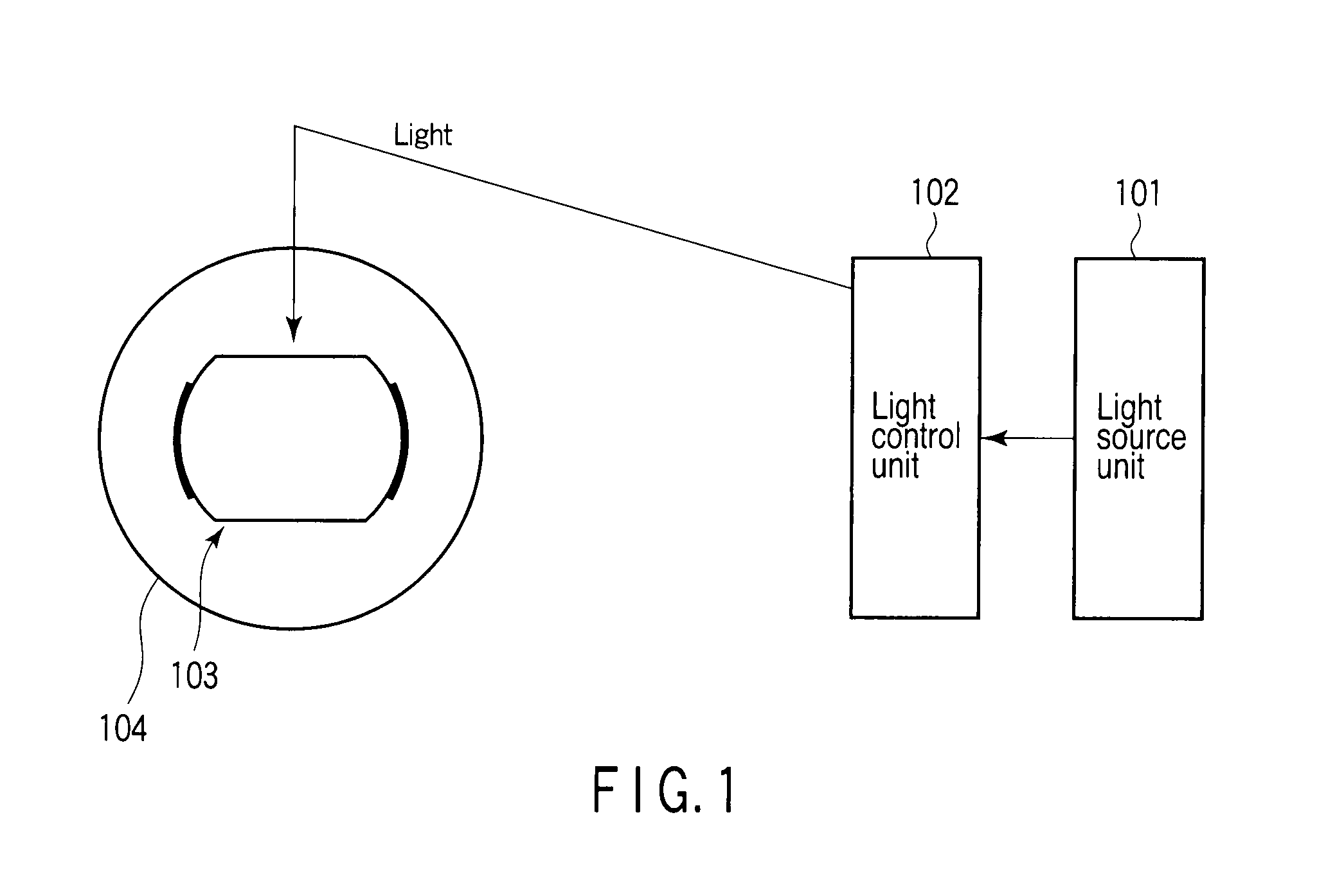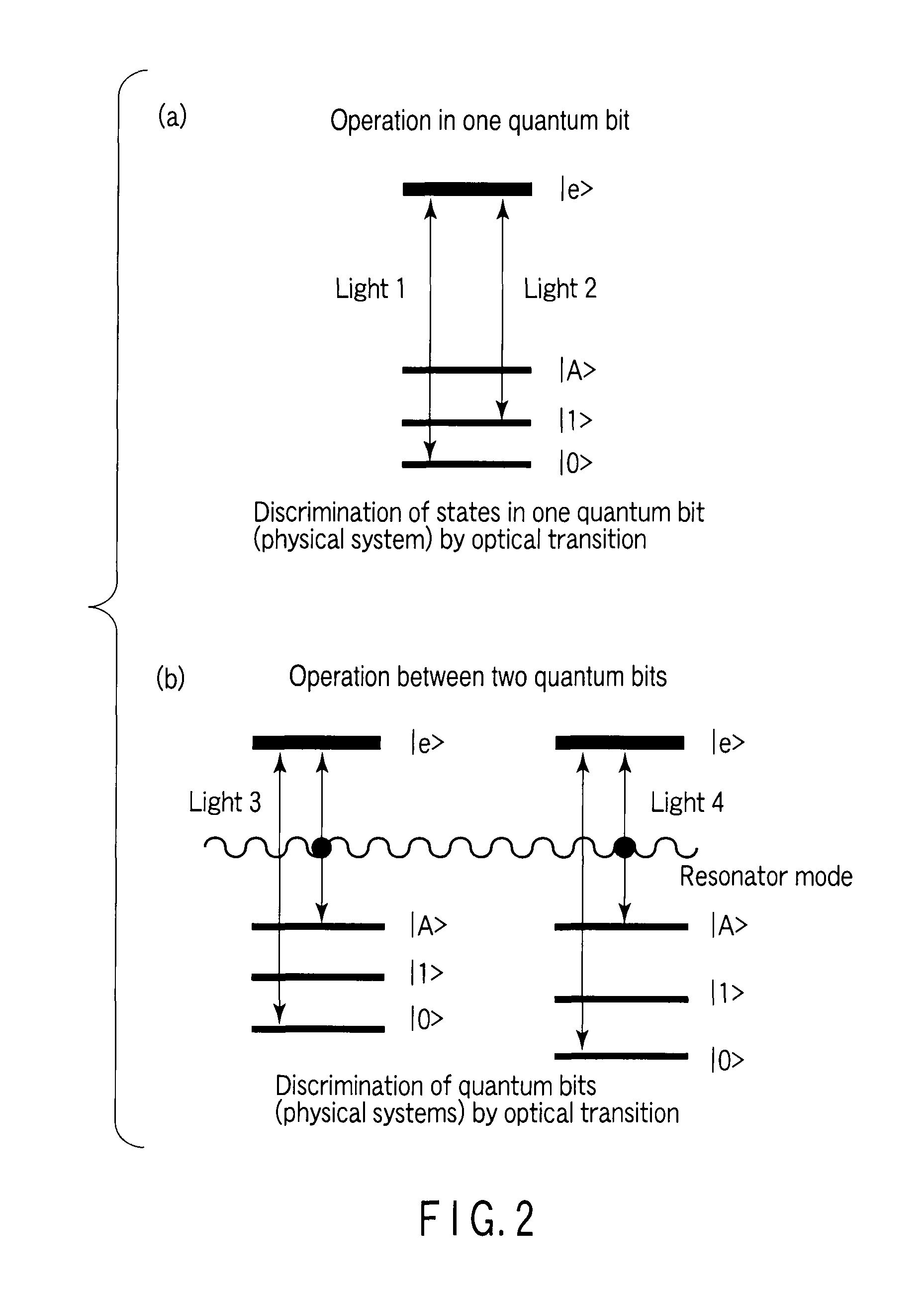Quantum gate method and apparatus
a quantum gate and gate method technology, applied in computing models, instruments, computations using denominational number representations, etc., can solve problems such as difficulty in setting a coupling constant g to a value sufficient for a 2-qubi
- Summary
- Abstract
- Description
- Claims
- Application Information
AI Technical Summary
Benefits of technology
Problems solved by technology
Method used
Image
Examples
first example
[0060]In a quantum gate method and apparatus according to a first example, Pr3+ ions in Pr3+:Y2SiO5 crystal, in which 10−3% Y3+ ions in Y2SiO5 crystal are replaced with Pr3+ ions, are used as quantum bits. The crystal has a size of approx. 10 mm×10 mm×10 mm, and has a surface provided with a mirror of extra-high reflectance to thereby provide a resonator structure. The resonator mode resonates with a transition of the 3P0−5d band of each Pr3+ ion, and the mode waist radius is approx. 1 μm. The crystal is placed in the cryostat and kept at 1.5 K. The energy states included in those of each Pr3+ ion in the Pr3+:Y2SiO5 crystal and used in the first example are shown in FIG. 6.
[0061]Referring now to FIG. 7, the quantum gate apparatus of the first example will be described.
[0062]The quantum gate apparatus of the first example comprises argon ion laser excitation ring titanium sapphire lasers 701, 703, 708 and 709, ring dye lasers 702, 704, 705, 706 and 707, a laser frequency narrowing sy...
second example
[0075]In a second example, only the states |1>1 and |1>2 of the ions 1 and 2 to be subjected to the 2-qubit gate operation are transferred to the states |5>1 and |5>2, respectively, instead of transferring the states |0>1, |1>1, |0>2 and |1>2 of the ions 1 and 2 to |4>1, |5>1, |4>2 and |5>2. Further, light that resonates with a 1D2−3P0 transition is prepared by detecting a difference frequency between the laser beam emitted from the ring dye laser and the titanium sapphire laser, thereby transferring |5>1 to the state 3P0 of the ion 1. Furthermore, |5>2 is transferred to the state 3P0 of the ion 2 using light generated by the ring dye laser. In the second example, the method described in “Phys. Rev. A 72, 032333 (2005)” is applied to the resonator mode and physical systems in the above states. Namely, a single photon generated by a single photon source is applied to the resonator mode, thereby executing a control phase gate operation on the quantum bits 1 and 2. Lastly, using the sa...
PUM
 Login to View More
Login to View More Abstract
Description
Claims
Application Information
 Login to View More
Login to View More - R&D
- Intellectual Property
- Life Sciences
- Materials
- Tech Scout
- Unparalleled Data Quality
- Higher Quality Content
- 60% Fewer Hallucinations
Browse by: Latest US Patents, China's latest patents, Technical Efficacy Thesaurus, Application Domain, Technology Topic, Popular Technical Reports.
© 2025 PatSnap. All rights reserved.Legal|Privacy policy|Modern Slavery Act Transparency Statement|Sitemap|About US| Contact US: help@patsnap.com



